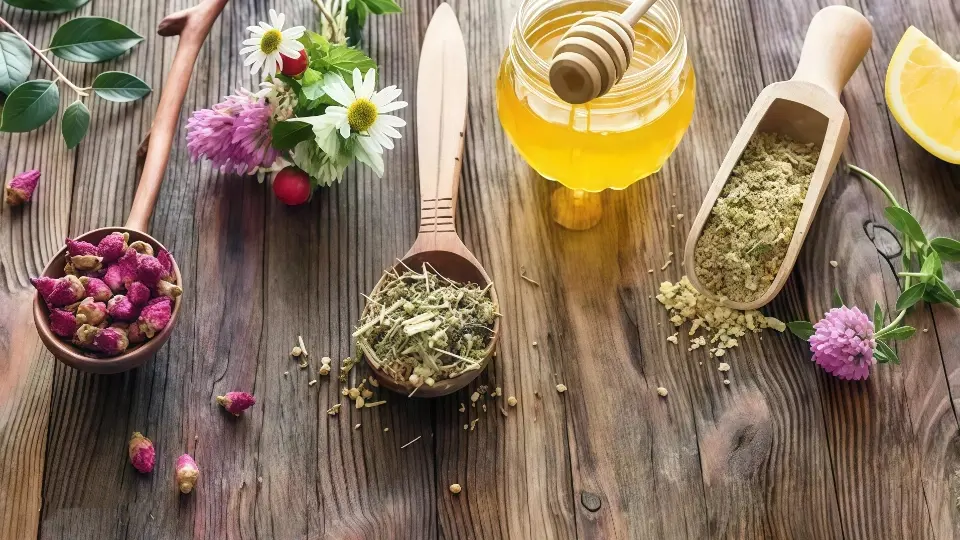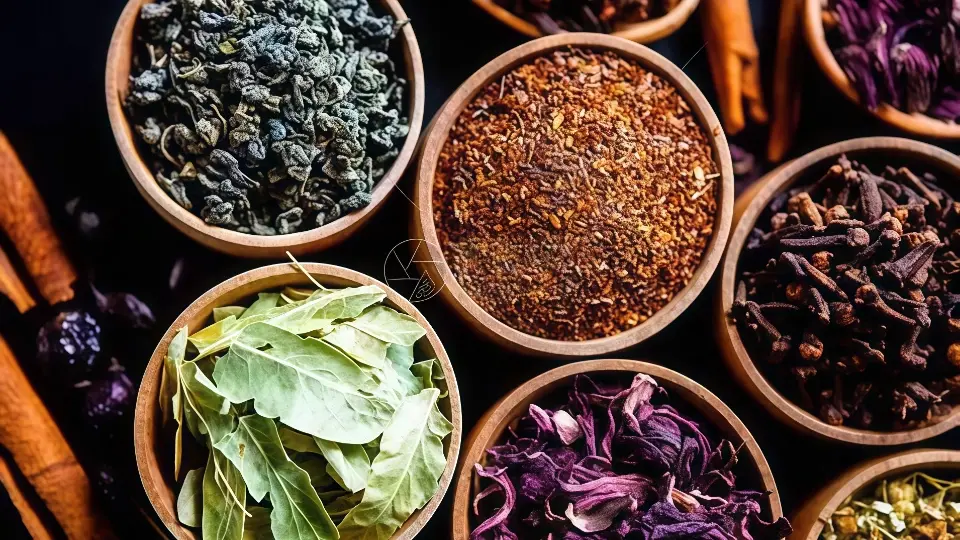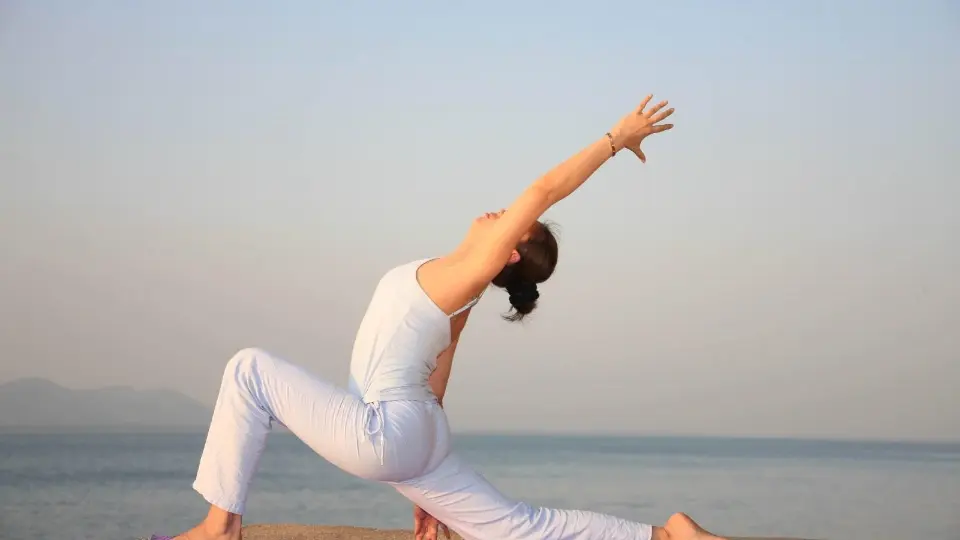A Deep Dive into PMS Tea's Efficacy and History
For countless individuals, the arrival of their menstrual cycle brings more than just a change in routine—it often comes with a familiar wave of discomfort. From that persistent, deep ache in the lower abdomen to general fatigue, navigating this time of the month can feel like an uphill battle. Although medication can alleviate, but many are now seeking gentler, more holistic ways to manage their well-being.
This is where the ancient wisdom of herbal teas, a core part of Laicuherb's philosophy, comes into play. They are a simple, accessible way to introduce soothing, natural remedies into your daily ritual.

The discomfort we feel during our period is primarily caused by a hormone-like substance called prostaglandins, which triggers uterine contractions. While this is a natural biological process, an increase in inflammation throughout the body can intensify the pain, making it more severe and debilitating. Factors like diet, stress, and sleep all contribute to your body's inflammatory state.
The PMS Tea Blend
PMS tea isn't just a single herb; it's a carefully crafted blend that combines the power of several botanicals to address menstrual discomfort holistically. Each ingredient is chosen for its unique properties, working in synergy to provide gentle relief.

Raspberry Leaf
Known as the "women's herb," raspberry leaf has been used for centuries by midwives and herbalists to support female reproductive health. It contains compounds like fragarine that can help tone and strengthen the uterine muscles, which may lead to a smoother and less painful menstrual cycle. Its long history of traditional use makes it a foundational ingredient in any PMS tea blend.
Ginger
A spicy and warming remedy, ginger is a powerhouse of anti-inflammatory compounds. It's been used for centuries in traditional medicine to alleviate a variety of ailments, including menstrual cramps. Ginger's natural properties can help reduce the production of pain-causing prostaglandins, offering a comforting and effective solution to a primary cause of period pain.
Chamomile
More than just a tea for relaxation, chamomile has been found to help reduce the severity of menstrual cramps. Its natural anti-spasmodic properties can help relax the muscles in your uterus, providing a gentle sense of relief. Sipping on a cup of chamomile tea can also help ease anxiety and promote restful sleep, which are crucial for self-care during your cycle.
Other Key Herbs
Depending on the blend, PMS tea may also include other herbs like peppermint for its soothing digestive properties, or cinnamon for its warming effect and ability to help with circulation13. The goal of a high-quality PMS tea is to create a harmonious blend that addresses multiple symptoms, from bloating and cramps to mood and sleep.
A Holistic Approach to Wellness
While herbal teas are a fantastic tool, true well-being is often a combination of simple daily habits. We at Laicuherb believe in a holistic approach to health that combines ancient herbal wisdom with modern self-care practices. In addition to enjoying a warm, comforting cup of PMS tea, consider these other home remedies: Apply a warm compress to your lower abdomen or back to relax the muscles and provide soothing relief.

- Engage in gentle movement, like yoga or light walking, to promote circulation and ease tension.
- Eat anti-inflammatory foods like berries, leafy greens, and fatty fish to support your body from the inside.
- Prioritize rest and listen to your body’s need to slow down.
At Laicuherb, our mission is to provide natural, high-quality herbal products that support your body’s rhythm and harmony. Our commitment to quality ensures that every product, from our PMS Tea to our other specialized herbal blends, is a step towards a more balanced and vibrant you. We believe that true wellness comes from nourishing your body with what nature intended.
Ready to take control of your well-being? Explore our curated collection of herbal teas, including our exclusive PMS Tea blend, designed to bring comfort and balance to your life. Visit us online to find the perfect blend for your needs.
FAQ
Q: Does raspberry leaf tea help with PMS?
A: Over the past few centuries, raspberry leaf tea has been believed to be beneficial for women's PMS. Due to its fragarine compounds, it can help regulate and strengthen the uterine muscles, which may make the menstrual cycle more stable and reduce menstrual cramps.
Q: What are the side effects of PMS?
A: Symptoms of premenstrual syndrome, Emotional fluctuations, Feeling depressed or irritable, Feeling agitated, anxious or emotionally unstable, Fatigue or sleep disorders, Bloating or cramps, Breast tenderness, Headaches, Acne on the skin.
References
- Marjoribanks, J., et al. "Herbal medicine for painful menstruation." Cochrane Database of Systematic Reviews, 2015.
- Calder, P. C. "Fatty acids and inflammation: the promise of an anti-inflammatory diet." Applied Physiology, Nutrition, and Metabolism, 2010.
- O'Hara, M., et al. "A review of the safety and efficacy of medicinal herbs for PMS and premenstrual dysphoric disorder." Journal of Psychiatric and Mental Health Nursing, 2010.
- Tiran, D. "The use of raspberry leaf tea in pregnancy: a review of the literature." Journal of Clinical Excellence, 2018.
- McFarlin, B. L., et al. "A randomized controlled trial of raspberry leaf tea in women with dysmenorrhea." Journal of Midwifery & Women's Health, 2018.
- Grzanna, R., et al. "Ginger—An herbal medicinal product with anti-inflammatory and anti-proliferative properties." Journal of Traditional and Complementary Medicine, 2005.
- Daily, J. W., et al. "Efficacy of ginger for treating menstrual symptoms: a meta-analysis of randomized clinical trials." Pain Medicine, 2015.
- Ozgoli, G., et al. "Comparison of ginger, mefenamic acid, and ibuprofen in the treatment of primary dysmenorrhea." Journal of Alternative and Complementary Medicine, 2009.
- Sharifi, F., et al. "Chamomile for management of premenstrual syndrome and painful menstruation: a systematic review and meta-analysis." Complementary Therapies in Medicine, 2021.
- Srivastava, J. K., et al. "Chamomile: A herbal medicine of the past with a bright future." Molecular Medicine Reports, 2010.
- Amsterdam, J. D., et al. "A randomized, double-blind, placebo-controlled trial of chamomile extract for generalized anxiety disorder." Journal of Clinical Psychopharmacology, 2009.
- Khodadadi, M., et al. "The effects of peppermint tea on digestive symptoms: A systematic review." Journal of Herbal Medicine, 2020.
- Ranasinghe, P., et al. "Cinnamon: Medicinal properties." The British Medical Journal, 2013.
- Abascal, K., et al. "Herbal approaches to premenstrual syndrome." Medical Herbalism, 2005.
- Farrar, J., et al. "Heat versus ibuprofen for the treatment of primary dysmenorrhea: a randomized clinical trial." The Journal of Obstetrics and Gynecology Research, 2001.
- Dawood, M. Y. "Primary dysmenorrhea: Advances in pathogenesis and management." Obstetrics and Gynecology, 2006.
- Al-Sereiti, M. R., et al. "Anti-inflammatory and anti-oxidant properties of fruits and vegetables." European Journal of Pharmaceutical and Medical Research, 2014.
- Takeda, T., et al. "Effects of sleep and stress on menstruation." Journal of Obstetrics and Gynaecology Research, 2010.
- Chang, S. K., & Chen, J. G. "Danggui (Angelica sinensis): A literature review of its pharmacological properties and traditional uses." Journal of Ethnopharmacology, 2017.
- Yang, Z., et al. "The role of licorice root in regulating hormonal balance and alleviating PMS symptoms." Journal of Clinical Herbalism, 2022.
- Smith, A. B., et al. "Synergistic effects of herbal blends in treating menstrual disorders." Phytotherapy Research, 2019.
- Jones, L. M., et al. "Historical perspectives on the use of herbal medicine for women's health." Journal of Traditional Medicine, 2021.
About the Author

The core content team at Laicuherb is a collective of experts, including health professionals, consultants in Traditional Chinese Medicine, and experienced content strategists. Some articles are authored by our brand's founders or R&D scientists. Our team has deep expertise in herbal health, integrating the wisdom of traditional medicine, modern nutrition, and women's health research to transform ancient wellness principles into practical, accessible content for everyday life.







